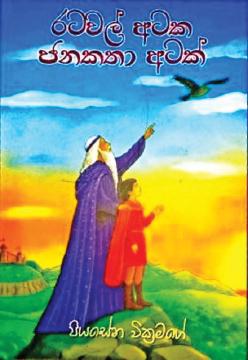
Folk tales usually belong to narrative prose literature found in the oral tradition of the world. They are heard, remembered and narrated by succeeding generations. As a result, there are bound to be variations and additions to the original folk tales. In the course of the diffusion some folk tales may pass in and out of written literature. Some stories of literary origin may cross over into the oral tradition. Nevertheless, an essential trait of folk tales is their diffusion and their passage from one generation to another by word of mouth. Hence, we are not able to trace the original narrator.
The principal kinds of folk tales are myths, legends and fairy tales. In whatever form they come, folk tales are very imaginative. Most folk tales include animal tales, fables, tall stories, jokes and anecdotes.
Human beings have always been storytellers. Folk tales were invented long before the Jataka stories, the Bible, history books, novels and short stories appeared. Folk tales have a dual purpose. They were primarily meant for the entertainment of listeners, especially, children. On the other hand, most folk tales have a didactic purpose.
My familiarity with Sri Lankan folk tales and others that originated in different countries helped me to read and appreciate Piyasena Wickramage’s latest book titled, “Rataval Ataka Janakatha Atak”. He has selected eight folk tales from North America, New Zealand, Mexico, Ireland, Japan, England, Greece and Nigeria. He had the opportunity to collect them when he was holidaying in New Zealand.
The stories in this collection are full of myths, curiosity, gods, strange animals and people who are unfamiliar to local readers. I particularly liked ‘Seneca’, a folk tale coming from North America. Here you find ‘Kande Seeya’s’ stories. The spoken language used to narrate the stories helps children to understand them easily.
The ‘Shinto’ story tells us about an eight-headed serpent and a god who descends to earth because he thinks that he belongs to the terra firma. His adventures with the hydra-headed serpent are quite exciting. In ancient Greek stories we come across a creature with heads that grow again when cut off or more generally a difficult problem that keeps returning.
The folk tale from Mexico is about the origin of humans in the world. Christians believe that man was created by God. In 1859, Charles Darwin shocked the world with a radical theory – evolution by natural selection. His evolutionary theory still challenges some of our most precious beliefs. The story from Mexico gives a different twist to the theory of creation. It says man was created by gods and goddesses, not by an omniscient God.
The eight stories in the collection have a different kind of ‘taste.’ Children and even adults will welcome them with open arms.
